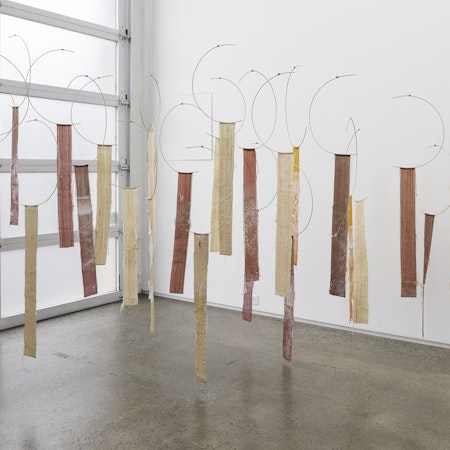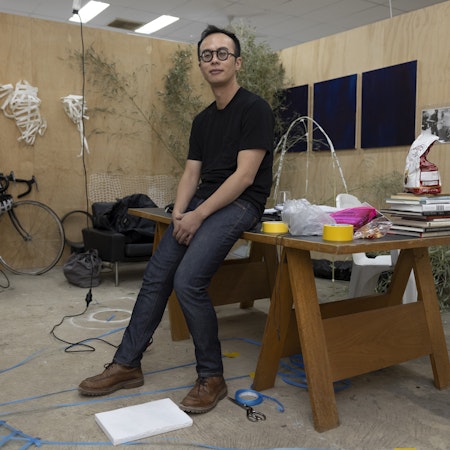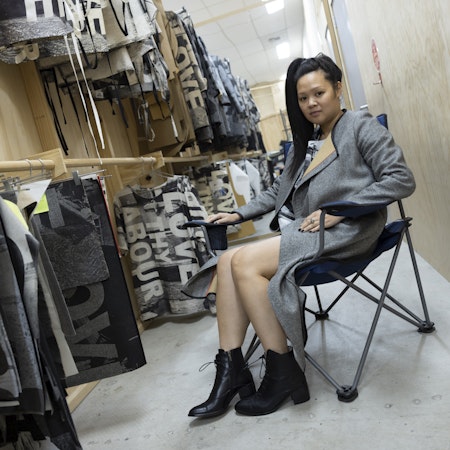To be a migrant in this place we call Australia is to be an eternal worker. It’s to forever embody a ‘work ethic.’ It’s to strive faster, longer, harder. It’s to submit to the silent understanding that the shiny things you were promised — a house, a job, the ground on which you stand — demand your endless labour.
That, in a settler colony that was unlawfully taken, you will pay tiny pieces of your life to ensure that you belong.
To be a migrant in this place we call Australia is to be haunted by the ghost of the White Australia Policy. The officer who only let you in because they needed bodies to build a country. The bureaucrat in the visa queue who denies your permanent residency.
In the streets around this gallery, you can hear the voices of men who, by day, toiled in factories and by night, watered their lemon trees. Women who put their daughters through school by sewing clothes for strangers. But among daily slights and sacrifice, there’s beauty and power too.
Empty Pockets brings together work about work from artists who are acquainted with the ways that histories of migration are bound up with stories of labour.
For James Nguyen, a string of gloves, like clothes on a washing line, recalls the toil of fruit-picking in Adelaide market gardens. They resemble those worn by underpaid art-handlers. The fate of artists is also shaped by the currents of capital. These conditions are made material, rendered in screen print on textile, by Kay Abude.
Kirtika Kain conjures Dalit writer Baburao Bagul in objects — combs, vessels, copper plates — she imagines belong to him. The artist gives mundane items a sheen of reverence. Cambodian-Australian artist Linda Sok foregrounds silk weaving — a matrilineal tradition stamped out by the Khmer Rouge regime. It also references her parents’ efforts at pickling vegetables.
The work of being a migrant is relentless. Too often, your labour dictates your value.
We can pay attention to unseen efforts. But when can we heal and rest and renew?


